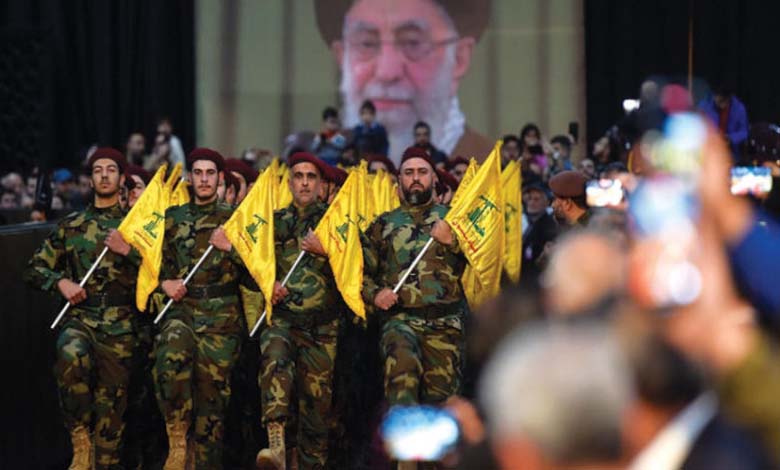The “gouged eyes” could have been avoided… Here’s what Hezbollah overlooked

A year ago, the former head of Israel’s Mossad, Yossi Cohen, made a statement that was less than ten words long but was “explosive” enough to “detonate” later on.
-
The “Empire” of Smuggling and Gold: Why Lebanon Grows Poorer While Hezbollah Becomes Wealthier
-
Geagea attacks Hezbollah: Dragging Lebanon into an “absurd war” that did not benefit Gaza
In an interview conducted in September 2023 with the Israeli site Mako, Cohen said: “We want to be in their supply chain and interfere with it.”
According to the Israeli platform “Intelli Times,” which specializes in intelligence news, this statement was a disclosure by Cohen about how Israel deals with Iran and Hezbollah.
The statement, made a month before the war between Israel and Hamas in Gaza broke out, was not the first from this former security official, indicating that the tactic of intercepting supply chains is not new to the Israeli approach.
-
Hezbollah’s Response to Chokr’s Assassination Eased Tensions
-
What Weapons Will Hezbollah Use in an Open War with Israel?
Previously, in June 2021, Cohen hinted that the Mossad was responsible for the explosion at Iran’s underground centrifuge facility in Natanz, the country’s key uranium enrichment site.
At the time, he stated: “The centrifuges were spinning there,” and when asked, “They’re not anymore?” Cohen replied: “Indeed.”
When asked about the explosives hidden under a marble surface where the centrifuges were placed, Cohen responded: “This is no coincidence, we want to be part of the supply chain.”
-
Washington Post reveals how Lebanese pay the price for Iranian threats and ongoing Hezbollah-Israel clashes
-
Hezbollah Bets on Tunnel Warfare in Confrontation with Israel
It could have been avoided
Therefore, all these statements could have been read carefully, as well as the explosion at the Natanz facility, for Hezbollah to realize that its adversary was watching it in the supply chains.
However, it seems that a significant security gap—as experts believe—contributed in one way or another to Hezbollah receiving an “unprecedented” blow, as admitted by Secretary-General Hassan Nasrallah in a televised speech on Thursday evening.
-
Can Israel Deter Hezbollah? Dark Scenarios for a Potential Confrontation
-
New U.S. Sanctions Targeting Yemeni Houthis and Lebanese Hezbollah
In any case, it seems that the ongoing conflict between Israel, Iran, and its arm Hezbollah requires not only caution regarding communication devices of all kinds but also close attention to statements and media reports, as one of them might hold the key to victory or defeat.
Thirty-seven people were killed and nearly three thousand others injured due to the explosion of “pagers” on Tuesday, followed by wireless communication devices on Wednesday, used by Hezbollah members, according to the Lebanese Ministry of Health.
-
12 Hours of Chaos in Israel “Saved” Hezbollah from a Potential Strike
-
Israel avoids total war in response to Hezbollah
The communication device explosions occurred amidst daily exchanges of shelling between Hezbollah and Israel since the war between Israel and Hamas in Gaza began more than eleven months ago.
Tel Aviv did not comment on the explosions, which occurred the day after it announced the expansion of its war objectives in Gaza to include securing the northern border area with Lebanon to ensure the return of Israelis to the region.
-
Hezbollah Focuses on Targeting Israeli Gas Fields
-
Hezbollah Conceals Its Losses with Promotional Displays of the ‘Hudhud’ Drone
Gouged eyes
Suddenly, wireless communication devices exploded in the faces of thousands in Lebanon, including Hezbollah members. Some explosions led to deaths, while others required serious surgeries to extract and remove the eyes of the injured.
Eyes were gouged out of their sockets, according to Lebanese doctors, who confirmed that most injuries were in the face, abdomen, arms, and legs, with the most serious injuries affecting the eyes.
-
Know Hezbollah’s “Primitive” Tactics in Confronting Israeli Technology
-
Violent Clashes Between Hezbollah and Israel Amid Preparations for Total War in Southern Lebanon
As for why the eyes were targeted, which often led to their removal, experts explained that the “pagers” or “Icom” devices used by Hezbollah receive messages for reading.
Thus, the first thing the device user would notice is the reception of a large number of messages, prompting them to look at the screen to read them.












